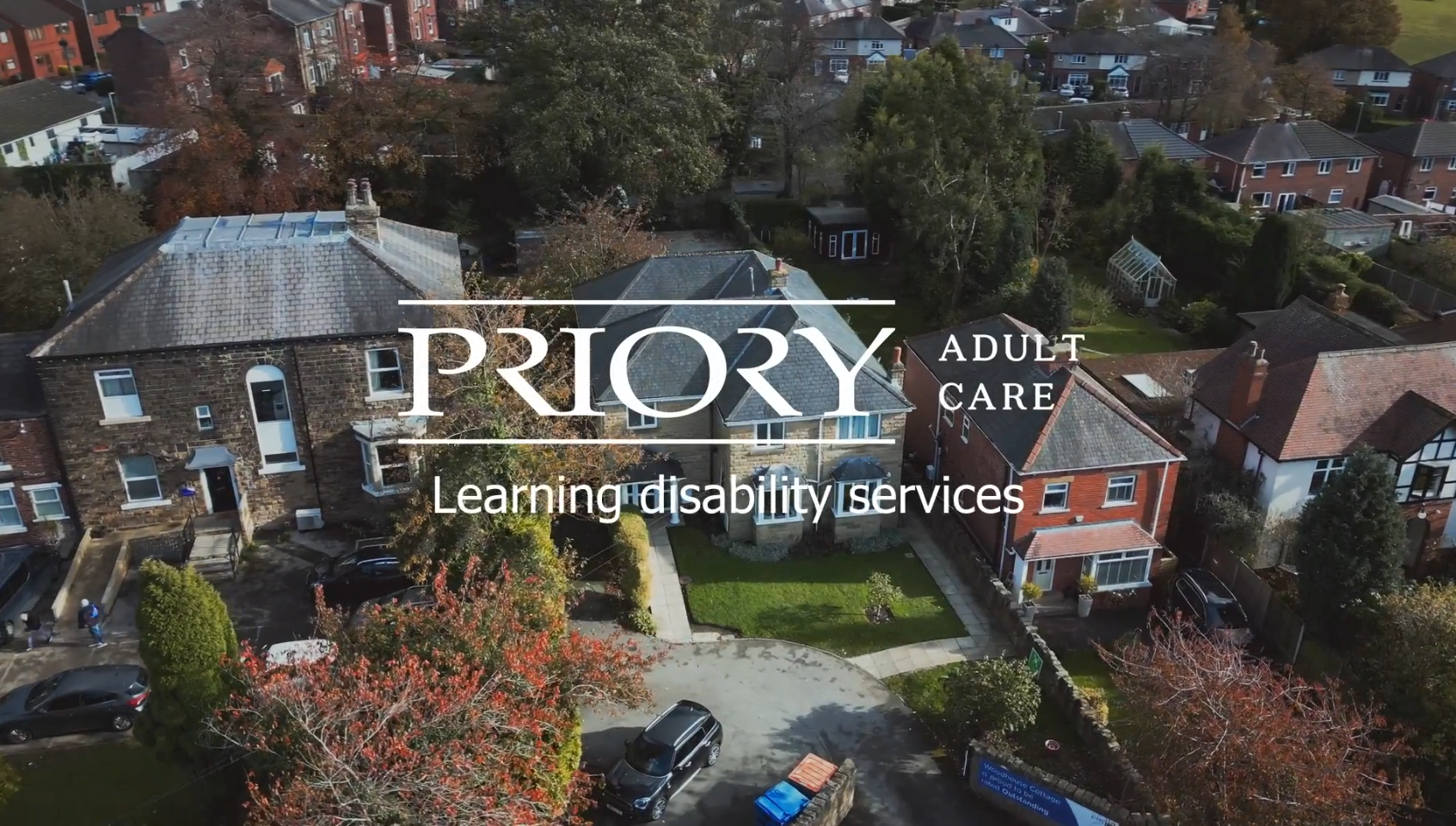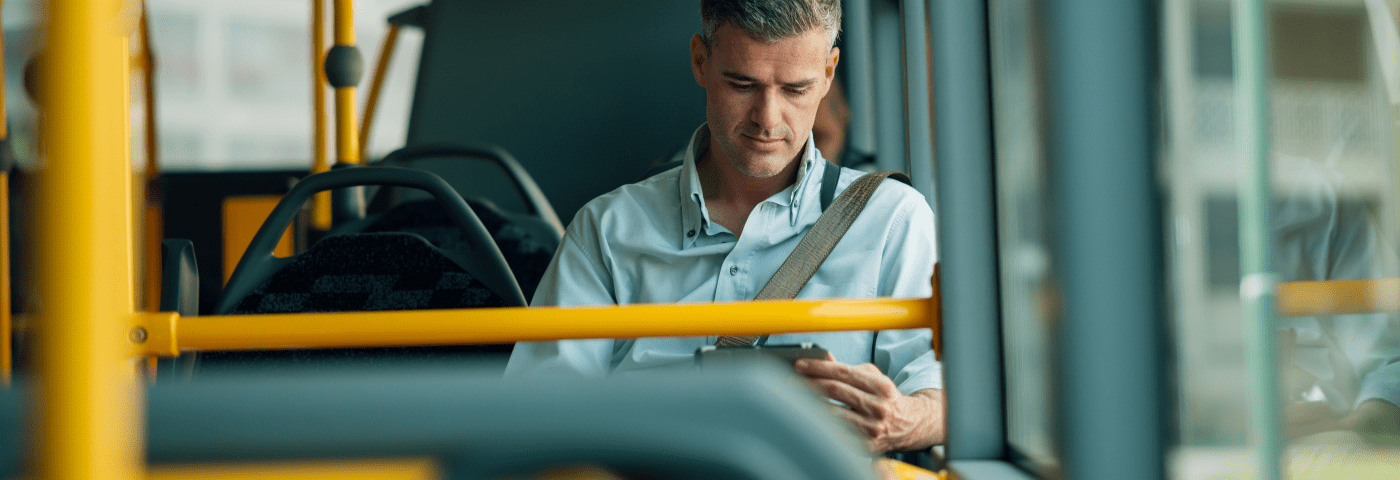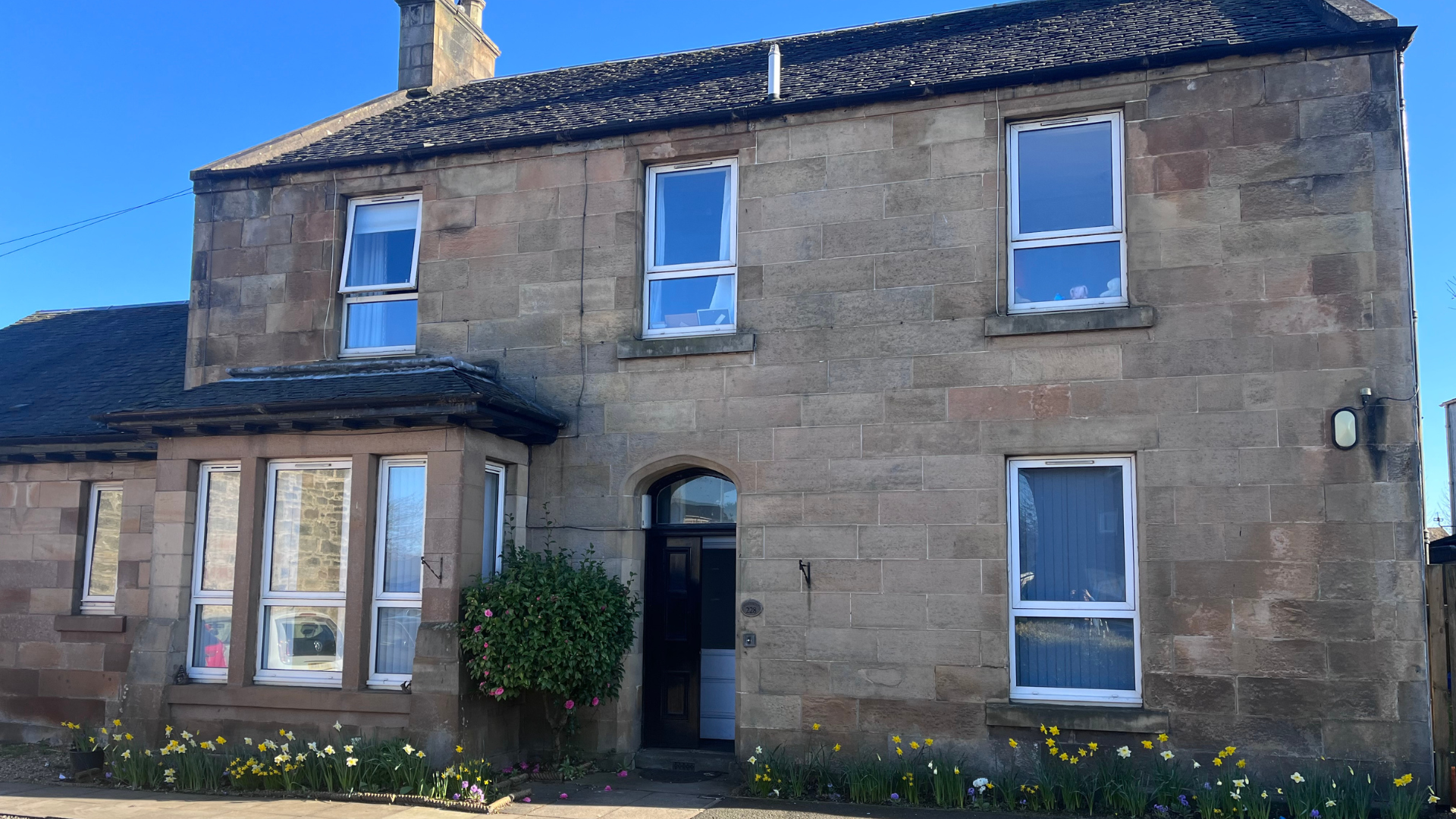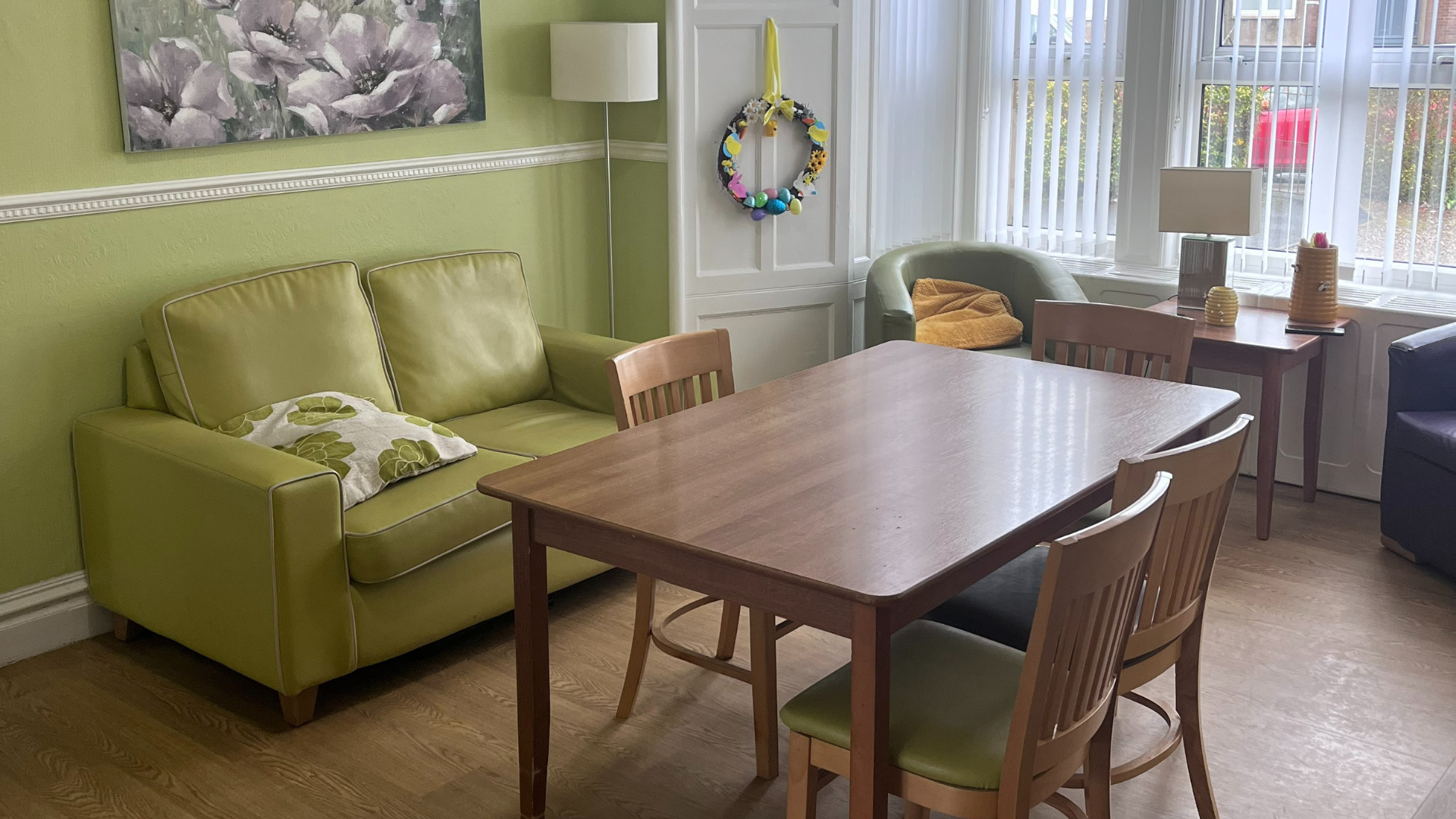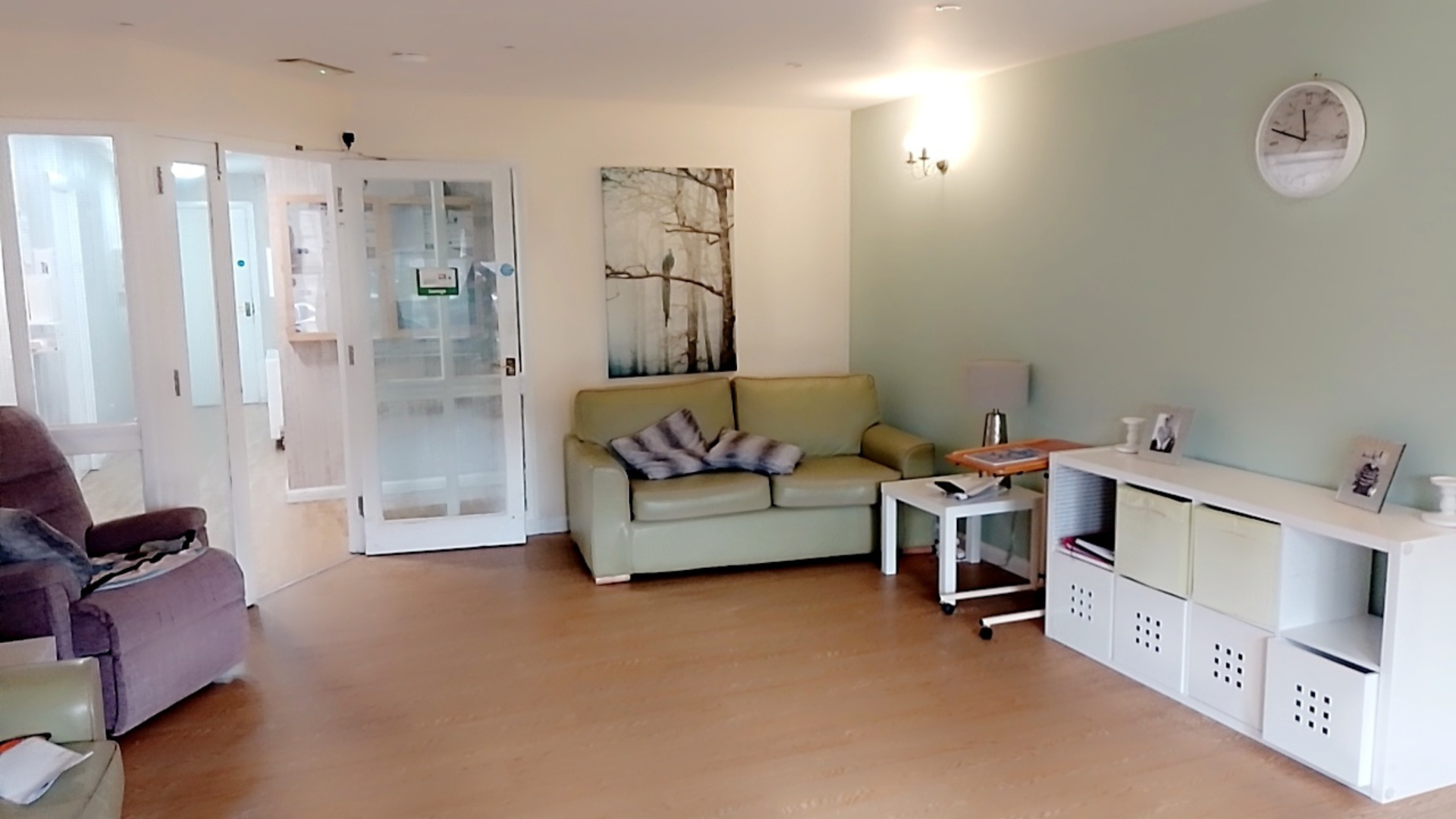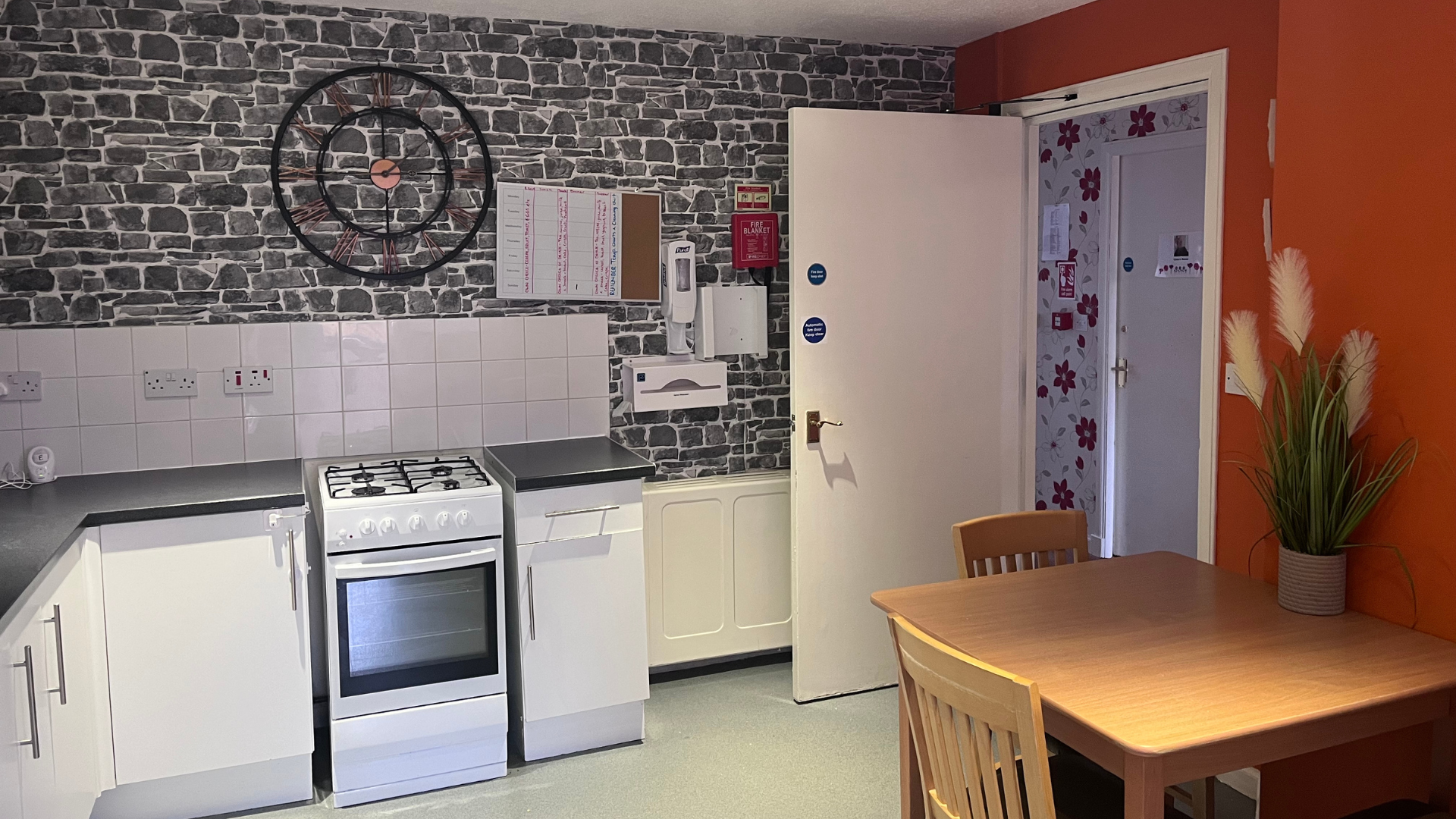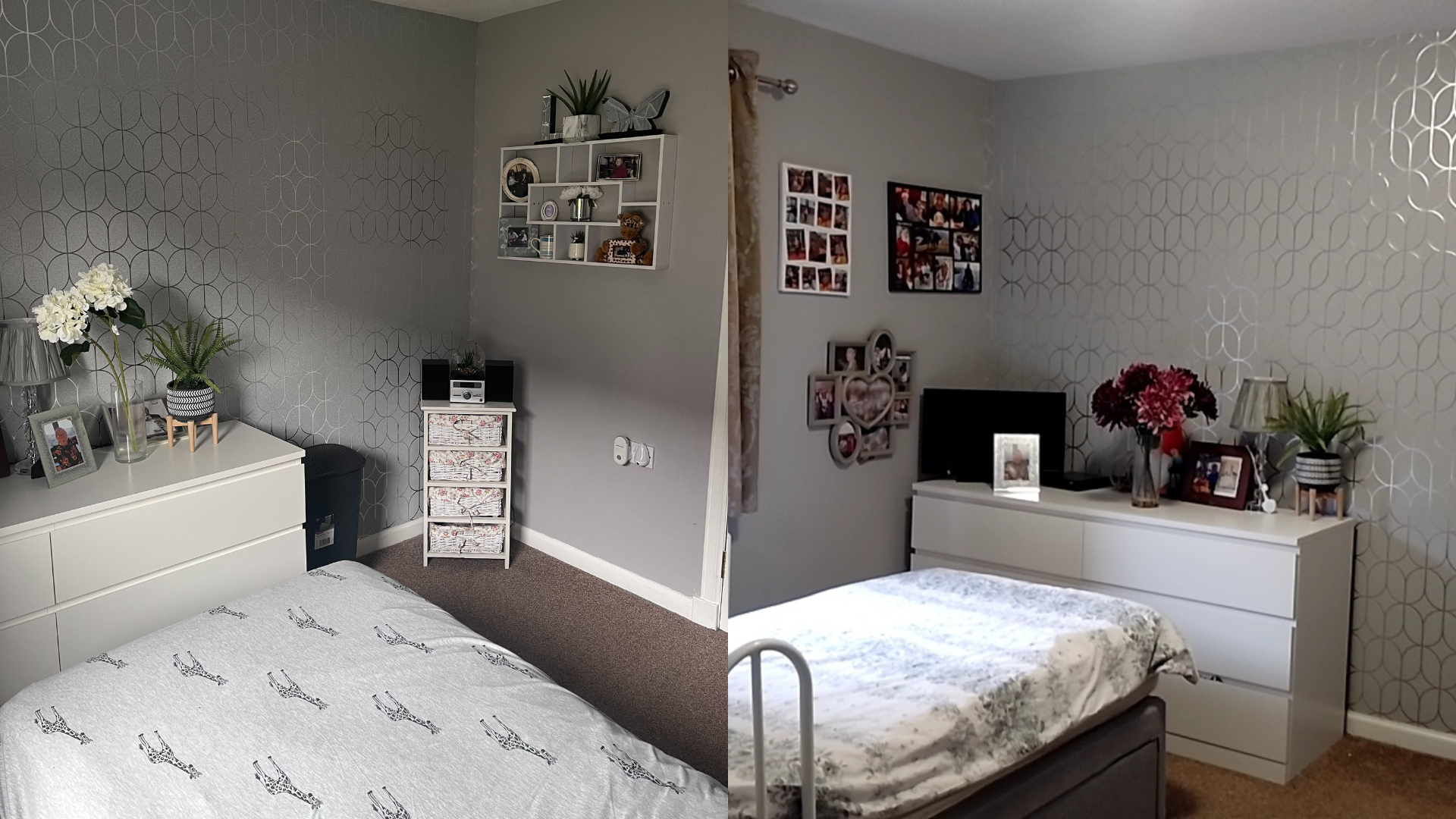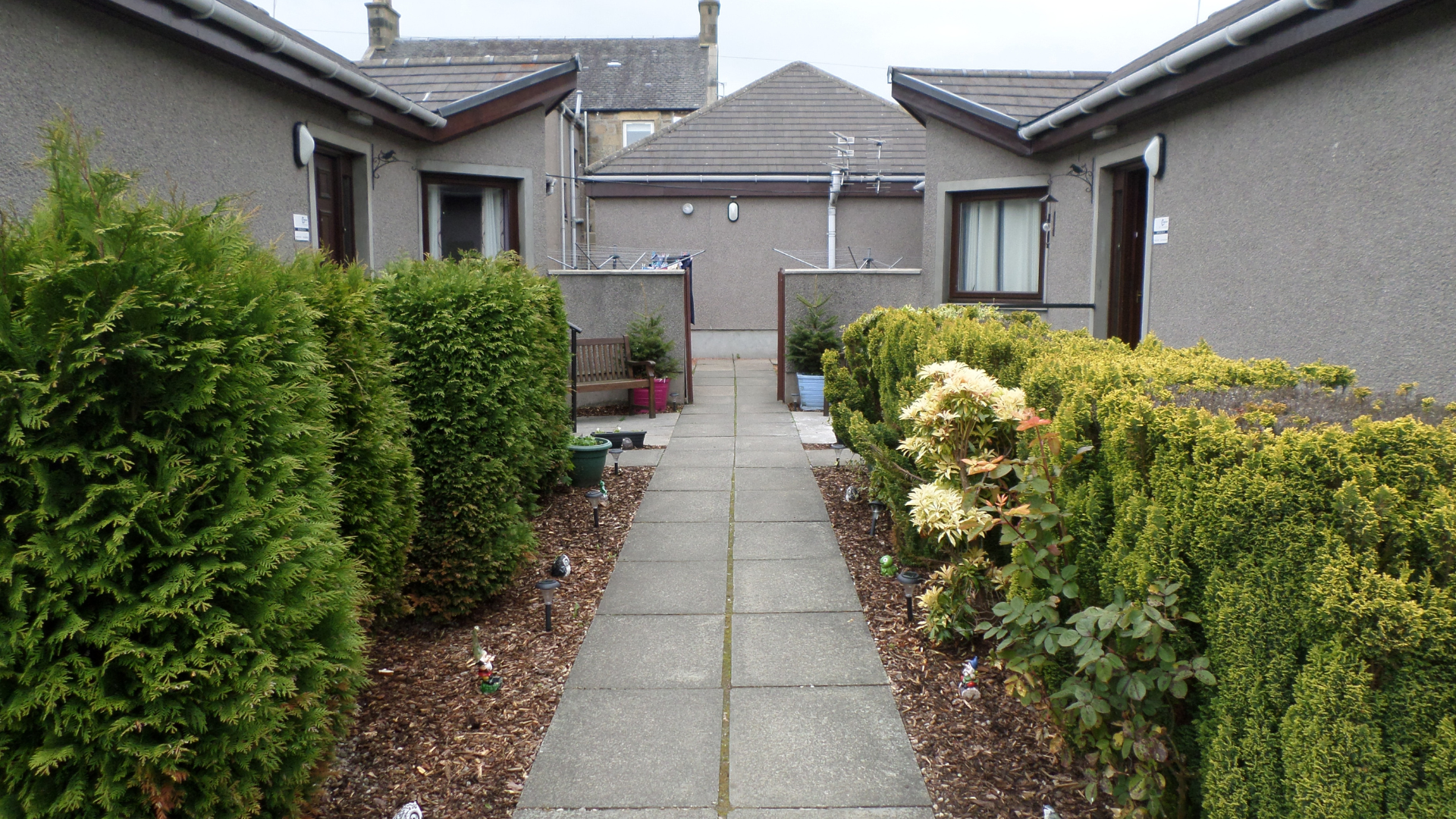About this location
Dunvegan is located in the town of Stenhousemuir, near Falkirk, in Scotland. It offers residential support for 33 males and females who have a learning disability, and is split across a main house and eight bungalows, which creates a small community feel.
Our team are dedicated to improving the health and wellbeing of the people we support, helping them to achieve positive outcomes. We want to help each person we care for to have a healthy, happy and independent life, within a safe and welcoming home. Our work is inspired and guided by the keys to life strategy that recognises that people with a learning disability have the same aspirations and expectations as everyone else and should be empowered to achieve these.
We can also support people who are on the autism spectrum or have mental health needs.
Services at a glance
Click here to enable this content
About our service
Our facilities and environment
Dunvegan is a large stone-built, detached house which has lots of space and offers a relaxed, homely feel. To the rear of the main building, there are a further eight detached bungalows, surrounded by beautiful gardens.
Dunvegan is set up across nine units and three departments. This includes the Flats:
- Flat 1 is a 2-storey building with 7 bedrooms, 3 communal bathrooms with both bath and shower facilities available and a large communal kitchen, lounge and dining areas. It is a male unit, supporting individuals with a learning disability or mental health needs, who are more independent. Flat 1 also has a recently refurbished activity room that is utilised and accessible for all residents across the service.
- Flat 3 is a 6-bedded bungalow with 2 communal bathrooms with shower/wet room facilities and also a mobility-adapted bath. Flat 3 also has a communal kitchen, living area and conservatory/dining area. This unit supports individuals with a learning disability, mobility needs and epilepsy.
- Bungalow A is a 4-bedded bungalow with 2 communal bathrooms, comprised of a shower room and a bathroom with a mobility-adapted bath. This unit supports people who have a learning disability, who may have epilepsy or be older in age, but able to complete many tasks independently. There is a communal lounge and kitchen area for residents to make use of.
- Bungalow B is a 4-bedded specialist bungalow with 2 communal bathrooms, which includes a shower room and a bathroom with a mobility-adapted bath. This unit supports individuals who have a learning disability and require additional support, due to an additional diagnosis of dementia. This unit has been adapted and decorated to support those with dementia, to minimise the distress and confusion that this diagnosis can cause. There is a communal lounge area and kitchen area for the residents to use.
- Bungalow C is a 2-bedded bungalow which supports individuals who may find communal living more difficult. Staffing in this unit is provided on a 1:1 basis, supporting those with behaviours that challenge. This unit has shared communal lounge and kitchen areas.
- Terrace G is a 4-bedded specialist unit that supports individuals with a learning disability, complex health needs and mobility needs. This unit has communal lounge and kitchen areas available, as well as 2 communal bathrooms with a shower and mobility-adapted bath.
- Terrace F is a 2-bedded unit for individuals who may display behaviours that challenge, who require support on a 1:1 basis. This unit has a shared kitchen, lounge and bathroom with both shower and bath facilities.
- Terrace E is a 2-bedded unit for individuals who are more independent, however require some staff support with their daily activities. This unit has a shared kitchen, lounge and bathroom with both shower and bath facilities.
- Terrace D is a 2-bedded unit that deals with more complex care needs. Staff here support individuals with behaviours that challenge and mental health needs on a 1:1 basis. This unit has shared a communal kitchen, lounge, and bathroom with wet room facilities.
Residents have access to our many communal areas across the units, as well as laundry facilities within each unit. We also have a very large garden, complete with:
- Secure fencing
- Lawn
- Patio
- Communal seating
- Shelter
- Wheelchair access
- Vegetable patch
In addition, the garden contains a recently refurbished sensory garden, providing a stimulating environment.
We also have specialised equipment within the home, such as hoists. In addition, we have two site vehicles to help us to meet the needs of the people we support.
Our bedrooms
All of our bedrooms are comfortable, welcoming and can be personalised to individual tastes. We work with each person we are supporting to ensure we set up their space according to their needs and preferences. We supply furniture, however we can also accommodate people bringing their own furniture. Our bedrooms have robust, low arousal furniture.
In addition, our ground floor bedrooms in the house and the bungalows are wheelchair accessible and Disability Discrimination Act (DDA) compliant.
Our approach to support
Everybody who lives at Dunvegan has their own person-centred care plan, which is co-produced with input from the individual, their family members and professionals involved in their care. We aim to help everyone in our care to make their own choices about the support they receive. This may include support in a number of areas, such as going out in the community, personal care, cooking and cleaning, and maintaining family relationships.
Our support approaches at Dunvegan includes positive behaviour support (PBS) and the ‘keys to life’ programme. In addition, we use tools such as the Outcomes Star™ to support our residents to achieve their goals. We also have support from a local multidisciplinary team, including a local learning disability, social work and advocacy team as well as a music and aroma therapist.
The lengths of the placements that we offer at Dunvegan can be medium or long-term residential, depending on the needs of each person.
Activities
Everyone who lives at Dunvegan has their own personalised activities planner and are encouraged to take part in activities which are meaningful and fulfilling to them. Our dedicated team, led by our in-house activities co-ordinator, organise a variety of activities both at home and out in the community, including trips away.
We focus on supporting our residents to grow their independence. For some people, this may mean developing their daily living skills within the home. For others, this could be accessing work or educational opportunities in the local community.
Exclusion profile
- Those who pose a risk to others in communal living areas
- Those who pose a risk of suicide
Pathways
Through our network of healthcare, residential and supported living facilities, we provide unique care pathways which help the people we support to progress towards greater independence. Every individual we support is provided with a bespoke pathway plan, tailored according to their individual needs. We aim to ensure that each person is supported to live a fulfilling and active life in the community.
We work closely with Priory Supported Living Scotland, who can support people in their own home in the community. We also work in partnership with Falkirk Council, who are developing a supported living scheme for up to 18 individuals in solo-occupancy flats.
Our team
Our highly experienced team consists of:
- Service manager
- Deputy manager
- Senior support workers
- Support workers
- Activities co-ordinator
- Maintenance team
- Gardener
Our team receive specialist staff training, designed to meet the needs of each individual we support. This includes:
- Epilepsy training
- Autism specialist training
- Dysphagia training
- Learning disability training
A message from our site leader

Dunvegan is a forever home for some of our residents. I advise family members to look at this stage in their loved ones’ life as them moving out and becoming more independent, in the same way our children would when they grow up. However, our home gives the security of keeping their loved ones safe, and the opportunity to be part of a community. I have a child on the autism spectrum myself, so I understand the difficulties this brings. Everyone who works here treats our residents with dignity and respect, the same way I would want my child to be treated
Site leader of Dunvegan
Comments from our residents and their family and friends
I like spending time with the other residents and talking to the staff who are caring for me. I have my own job in the local charity shop and use the local gym. I enjoy spending time outside in the summer at the barbecue’s held at the house as everyone is together
We observed staff interacting with and supporting people, and we saw that these were respectful, kind and caring interactions. Staff asked people their preferences, respected their personal space in bedrooms, and spoke to people kindly and with knowledge about their lives and interests.
Family and friends FAQs
How does home leave work?
We support our residents to attend family events and visit their family homes, including staying overnight, or for holidays with their loved ones. We will work with the resident and their relatives to ensure possible risks are managed and that everyone is supported. This may mean the individual’s key worker will come along on the visit. For those who are unable to visit their family home, we can support your loved ones with video calls.
Can friends and families visit?
Family and friends are welcome to visit. Visits are usually planned in advance to support individual needs. Unfortunately, family members cannot stay overnight. We regularly hold parties at the local bowling club for all our residents to get together and celebrate and we encourage family to come along too.
Will I be involved and kept up to date with the progress of my loved one’s care and support?
Yes, we strive to keep the loved ones of our residents involved in their care. Every month families are invited to a meeting at the home, where they will meet with the residents’ support team and hear about recent happenings at the home. We can also arrange more regular catch-ups either in person or via telephone, to ensure families are kept informed.
Will my loved one be able to have a phone or call me?
Everyone who stays with us are supported to call their loved ones any time, via phone or video call. Family and friends are also able to call as often as they like, with each unit having its own phone system.
What are the bedrooms like?
Bedrooms are all furnished and residents are supported to personalise them to suit their needs and wishes.
Are external doors kept locked?
Entrances across the home are accessible throughout the day. However, at night we do ensure all doors are locked, for security purposes.
What do residents eat and how do meal times work?
We offer a wide range of meals, with a choice of meat and vegetarian options. Residents, with support from our staff, are all involved in choosing the menu for the following week. Residents are supported to choose and prepare what they want to eat, whenever they like. We encourage people to maintain healthy diets with meal plans to suit their individual tastes.
How does laundry work?
Residents are given help to do their own laundry, as part of promoting independence. Our staff are on hand to offer support if and when it is required.
Who does the housekeeping and domiciliary tasks?
Staff support and encourage our residents to complete these tasks, to promote their independence. We also have a dedicated housekeeping and maintenance team at the home.
Is there anything they can’t bring or have?
Residents are not allowed to bring illegal substances onto the premises. We would also ask that people do not bring high risk personal items into the house.
How do activities work?
Activities are planned according to our residents’ choices and interests. Thorough risk assessments are conducted before any activity. Everyone has a tailored activities planner. This will include both in-house activities as well as visits into the community. Their key worker may use a variety of communication tools to ensure they can have an input into the planning of activities.
We have an on-site activity room where our activity co-ordinator organises arts and crafts, movie days, music therapy and dance sessions to keep up activity levels. Residents are also supported on days out to a variety of places including the safari park, the zoo, the local town and the beach.
How will residents be supported with their behavioural needs?
We use the PROACT-SCIPr-UK® framework, which means we focus on proactive strategies, rather than physical intervention. We recognise that people with a learning disability have the same aspirations and expectations as everyone else and should be empowered to achieve these. Some residents have sensory requirements to reduce anxieties, over-stimulation or to assist with emotional regulation and, and these needs will be incorporate into their support plans.
Do residents and families have an input into the care plans?
Yes, we encourage families and extended support providers to be involved with the care plans. We use a variety of communication tools to work collaboratively with the person we care for to co-produce the plans so they are tailored to their needs. We value this important input from others where appropriate.
What are the car parking facilities?
We have both on and off site parking.
What is the smoking policy?
There is a smoking area outside for residents to smoke or to vape. We do not permit smoking indoors. Our team aim to promote healthy lifestyles and can support the people who live here with smoking cessation programmes, if they choose.
What are your fees and how are they funded?
Our fees can vary, and are based on an assessment of each individual's needs. Many people are eligible for financial help towards the cost of support, and this funding can be accessed by contacting your local authority. Once funding has been agreed, we will work with your local care team to put together a bespoke package of care. Please note, referrals for NHS or Local Authority funded services must come from a referring organisation.
How to make a referral
Our service provides high quality support to people with varying levels of need. Referrals can be made through the individual’s social care team or, if relevant, their local health authority. If you are a professional looking to make a referral, please call us or fill in our enquiry form.


